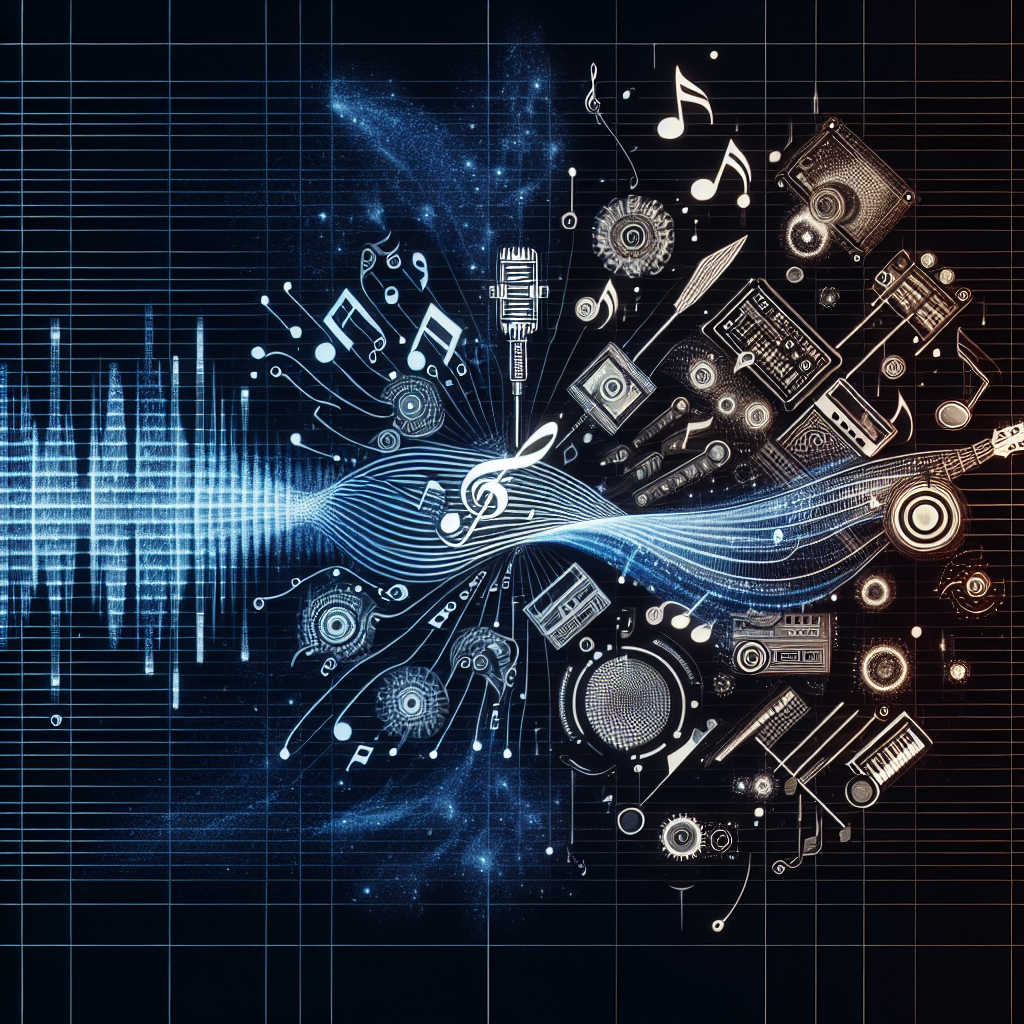The music industry has always been at the forefront of technological innovation, constantly pushing boundaries and exploring new ways to create, distribute, and consume music. In recent years, one of the most groundbreaking advancements in music production has been the integration of artificial intelligence (AI) technology. AI is revolutionizing the way music is made, offering new tools and possibilities for musicians, producers, and listeners alike. In this article, we will explore the future of music production and how AI is changing the game.
AI in Music Production
AI technology has been increasingly used in music production to automate and enhance various aspects of the creative process. From generating melodies and harmonies to mixing and mastering tracks, AI algorithms can assist musicians and producers in creating high-quality music faster and more efficiently than ever before.
One of the most popular applications of AI in music production is the use of AI-generated music. AI algorithms can analyze vast amounts of data from existing songs and create new compositions based on patterns and trends found in the data. This can be a valuable tool for musicians looking for inspiration or struggling with writer’s block. AI-generated music can also be customized to fit specific genres, moods, or styles, making it a versatile tool for artists working in a variety of musical genres.
Another area where AI is making a significant impact is in the field of music mixing and mastering. Mixing and mastering are crucial steps in the production process that can greatly affect the overall quality of a song. AI algorithms can analyze audio tracks and make real-time adjustments to achieve optimal levels of volume, EQ, and compression. This can save producers hours of manual labor and help them achieve professional-sounding results quickly and efficiently.
AI-powered tools are also being used to assist musicians in learning and practicing their craft. For example, AI algorithms can analyze a musician’s playing and provide real-time feedback on their technique, timing, and accuracy. This can be a valuable tool for musicians looking to improve their skills and take their playing to the next level.
The Future of Music Production
The future of music production is bright, thanks to the continued advancements in AI technology. As AI algorithms become more sophisticated and powerful, we can expect to see even more innovative applications of AI in music production. Here are some of the ways AI is expected to change the game in the future:
1. Personalized Music Experiences: AI algorithms can analyze a listener’s music preferences and habits to create personalized playlists, recommendations, and music experiences. This can help music streaming services deliver more relevant content to their users and enhance the overall listening experience.
2. Collaborative Music Making: AI-powered tools can facilitate collaboration between musicians, producers, and songwriters by providing real-time feedback, suggestions, and enhancements to creative projects. This can help artists work together more efficiently and seamlessly, regardless of their physical location.
3. Augmented Creativity: AI algorithms can assist musicians in exploring new musical ideas, experimenting with different sounds and styles, and pushing the boundaries of creativity. By providing new tools and possibilities for artistic expression, AI can help musicians unlock their full creative potential and produce innovative and unique music.
4. Enhanced Audio Quality: AI-powered tools can analyze audio tracks and make precise adjustments to improve the overall quality of sound. This can help musicians achieve professional-sounding results without the need for expensive equipment or extensive technical knowledge.
5. New Revenue Streams: AI technology can help musicians and producers identify new opportunities for monetizing their music, such as through licensing, collaborations, and partnerships. By leveraging AI-powered tools to analyze market trends and consumer behavior, artists can make informed decisions about how to maximize their earning potential.
FAQs
Q: Can AI replace human musicians and producers?
A: While AI technology is becoming increasingly sophisticated, it is unlikely to completely replace human musicians and producers. AI algorithms can assist musicians and producers in various aspects of the creative process, but they cannot replicate the emotional depth, intuition, and creativity that humans bring to music making.
Q: Is AI-generated music considered plagiarism?
A: The legality and ethics of AI-generated music are still being debated in the music industry. While AI algorithms can create new compositions based on existing data, there are concerns about copyright infringement and intellectual property rights. It is important for musicians and producers to carefully consider the legal implications of using AI-generated music in their work.
Q: How can musicians and producers learn to use AI technology in their music production?
A: There are many resources available to help musicians and producers learn how to use AI technology in their music production. Online tutorials, workshops, and courses can provide valuable information and guidance on how to integrate AI-powered tools into the creative process. Additionally, experimenting with different AI algorithms and software programs can help musicians and producers discover new possibilities for their music production.
In conclusion, the future of music production is bright with the integration of AI technology. From AI-generated music to collaborative music making and personalized music experiences, AI is changing the game in the music industry. By embracing AI-powered tools and exploring new possibilities for creativity and innovation, musicians and producers can unlock their full potential and create truly groundbreaking music.

